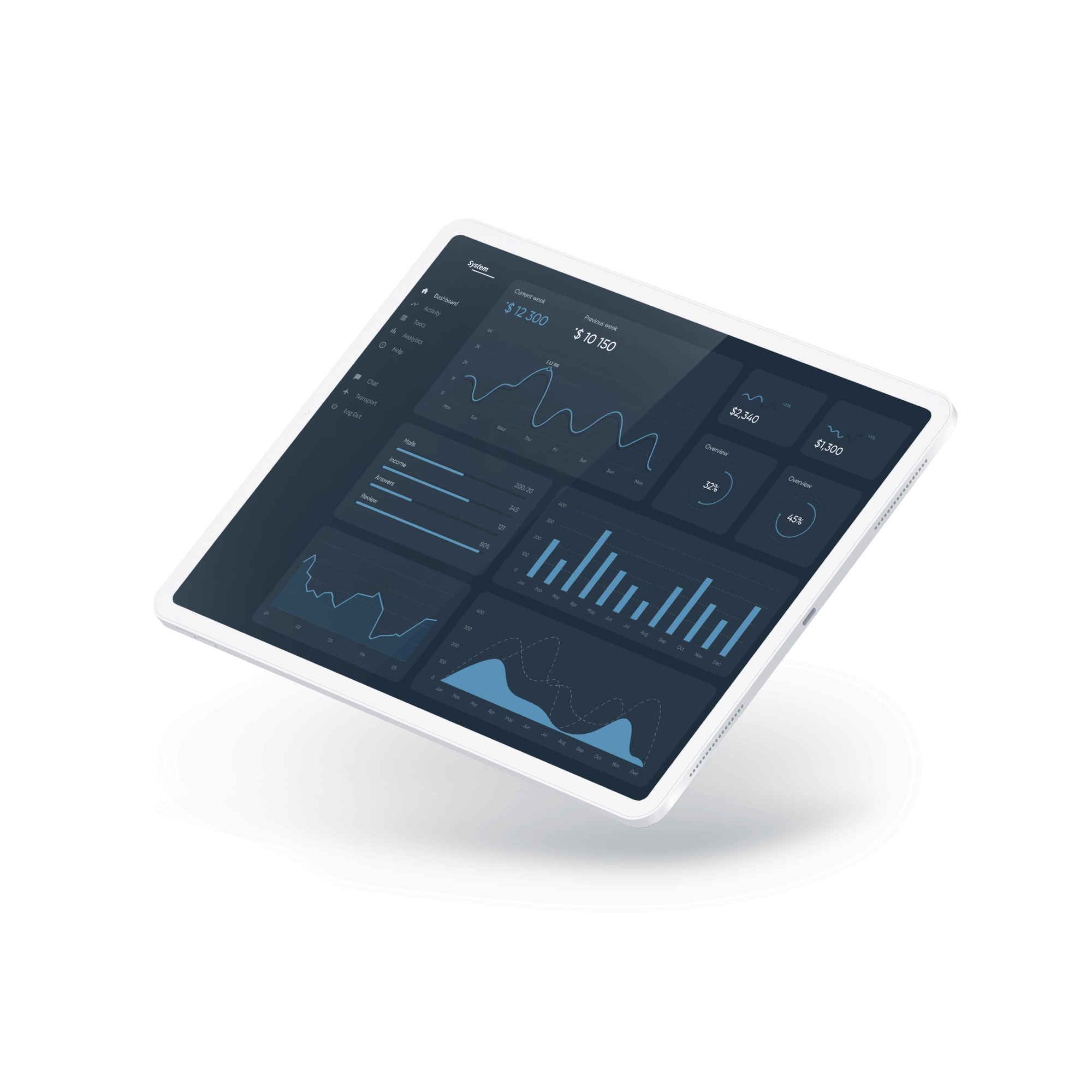
The energy sector is undergoing a paradigm shift as the world clamours for more environmentally friendly energy solutions — and with it, the need to develop innovative power products.
The ELEKS’ Head of Product Design Office, Oleg Slyusarchuk, shared his expert opinion on the main trends that are driving the development of sustainability-driven digital products for the energy sector.
- Transform your business with sustainability consulting
- Real-world example: ELEKS’ DAKAR software optimises load flow, stabilises power systems, and aids crisis management in Ukraine.
Innovations shaping a sustainable energy future
In this ever-changing landscape, the energy industry is undergoing a remarkable transformation driven by the growing importance of sustainability. Technological advancements have already revamped many facets of the energy sector, from production to transmission and storage. The mere presence of smart grids, energy-efficient appliances and other innovative energy solutions is invaluable.
However, it is essential to acknowledge that while these innovations may have some differences, they all share a common goal — prioritising sustainability and increasing our reliance on renewable energy sources.
Staying up to date with key energy industry trends
1. Renewable energy revolution
The world is undergoing a renewable energy revolution, and it's time to embrace this change. With the increasing demand for energy and the growing concerns about climate change, green energy sources such as solar, wind, and hydropower are becoming more popular.
Harnessing the power of renewable energy revolves around a fundamental principle — tapping into an endless supply of natural resources within our environment and converting them into practical electricity or sustainable fuels. In this pivotal endeavour, product and service design assumes a crucial role, driving the creation of groundbreaking solutions to capture, store, and effectively harness renewable energy.
As consumer demand for sustainable energy sources like solar and wind power continues to rise, energy companies find themselves at a pivotal juncture to proactively meet this demand. They have an opportunity to embrace renewable energy themselves and provide customers with renewable energy choices. These options can encompass community solar initiatives and eco-friendly energy tariffs, empowering consumers to participate in the clean energy movement.
Moreover, individuals are increasingly interested in generating power through distributed energy resources (DERs) like solar panels and energy storage systems. By offering DER solutions and services such as net metering and virtual power plants, energy companies can effectively cater to this growing preference for decentralised energy generation and consumption.
With an array of innovative technologies available to generate power from renewables, this trend has become one of the most significant developments within the energy industry today, and many government software solutions, companies and individuals are already reaping its benefits.
Renewable energy: real-life applications
With the help of the European Union, small and medium enterprises in Kosovo have embraced the promising realm of renewable energy, reaping remarkable rewards. For instance, Forma SHPK, a medium-sized enterprise specialising in plastic product manufacturing, made a strategic investment in solar panels. The outcome has been twofold: a substantial reduction in energy expenses and a significant stride towards environmental preservation. Forma SHPK successfully installed a robust 112kWp solar panel system, resulting in an impressive 80% reduction in energy costs.
2. Energy storage transformation
While renewable energy sources offer immense benefits, they often face a significant challenge: maintaining a consistent output throughout the year. Solar panels excel in sun-drenched regions but cannot generate power at night or during cloudy days. Similarly, wind power can be a potent source of electricity, but it relies on the whims of the wind. Recognising this, the renewable energy sector has embraced a crucial trend: finding innovative ways to store surplus power when production conditions are optimal.
Storage projects in power applications primarily aim to accumulate excess renewable energy and unleash it when needed. This stored energy is pivotal in alleviating grid strain during peak periods while empowering prosumers to profit from expensive energy purchases.
Energy storage technologies, including batteries and pumped hydro storage, are increasingly vital in shifting toward customer-centric energy ecosystems. Energy storage enhances resilience by effectively balancing the grid and providing backup power during outages. Furthermore, it enables customers to store energy generated from their own distributed energy resources, harnessing it at their convenience.
Many companies have entered the energy storage market diligently working to address the energy storage challenge.
Energy storage: real-life implementations
By leveraging the intermittent power generated by renewable sources like solar and wind, Energy Vault's, a Swiss startup, the innovative solution ensures a consistent supply of baseload power around the clock. Inspired by the proven concept of pumped-storage plants, their system harnesses the power of gravity and the movement of water to deliver unparalleled performance.
Another example is STOREH Energy Storage Technologies’ solution, that revolves around a hydrogen on-demand (HOD) system. Setting itself apart from conventional methods, this innovative system eliminates the need for compressors and tanks by producing hydrogen precisely when needed. Furthermore, STOREH's storage solution employs natural and environmentally friendly materials like zinc and water.
When the grid fails: Spain & Portugal blackout
On April 28, 2025, at approximately 12:33 CEST, mainland Spain, Portugal, parts of SW France, and Andorra lost power. Most areas were without electricity for up to ten hours, with significant disruptions to telecommunications and transport. The failure disconnected 31 GW of load, affecting around 60 million people. Tragically, it may have contributed to at least seven deaths in Spain and one in Portugal, as well as over 25 injuries.
This real-world crisis highlighted the vulnerabilities of grids heavily reliant on intermittent renewables without sufficient storage or digital balancing systems. It underscored the need for large-scale investments in grid-forming technologies to ensure reliability as renewable penetration continues to rise.
3. Digitalisation revamping energy sector
The imperative of digital transformation reverberates across industries, with the energy industry no exception. As the array of energy sources expands, managing such a dynamic system requires highly sophisticated automation and analytics. Supporting technologies, including predictive artificial intelligence, machine learning, and the Internet of Things, play a pivotal role in studying demand patterns and dynamically adjusting power allocation across distributed grids.
The power of digitalisation and data analytics takes centre stage in the seamless integration of distributed energy resources and energy storage into the grid. By harnessing these transformative technologies, customers can access real-time information about their energy usage and associated costs. Thus, customers can make informed decisions about their energy consumption, optimising efficiency and cost-effectiveness. Simultaneously, utilities benefit from the ability to effectively manage the grid, promptly responding to fluctuations in supply and demand. This synergy of digitalisation and data analytics empowers customers and utilities to navigate the energy landscape with precision, ensuring a harmonious and dynamic energy ecosystem.

At the forefront of this digital revolution, smart grid infrastructure is a prominent trend in the energy industry. Smart grids leverage advanced sensors and automation systems to enhance efficiency and curtail power wastage within distribution networks. This empowers utilities to optimise resource management, bolstering reliability by mitigating issues like overloaded circuits or equipment failures, thus minimising outages.
In technological advancements, autonomous energy systems are poised to gain significant traction in the coming years, primarily fueled by strides in AI and ML solutions. These innovative systems enable utilities to monitor their operations autonomously, identifying areas for improvement and optimising performance with minimal reliance on manual intervention from on-site operators and technicians. This pioneering shift towards autonomy promises enhanced operational efficacy and streamlined maintenance processes.
Digitalisation in energy industry: real-life solutions
At ELEKS, we have years of experience addressing the challenges of the energy sector with advanced digital products. We have developed our own solution, DAKAR, a software product crafted by the experts at ELEKS to revolutionise real-time power systems management within vast power networks. This solution empowers organisations with automated system stability analysis and optimised load flow calculations, resulting in unparalleled operational efficiency. By centralising data storage and equipping users with specialised data management tools.
DAKAR's impact extends beyond the realm of efficiency as well. During times of adversity, such as constant missile attacks on the electric power system in Ukraine, DAKAR played a pivotal role. By modelling the optimal plan to power critical infrastructure, it skillfully balanced reduced power generation and current consumption, creating a schedule for emergency shutdowns. This critical functionality helped maintain the stability of the power system, safeguarding essential services even in the face of imminent threats.
While the energy and power business landscape constantly evolves, we can see that no trend is set in stone. To successfully navigate this intricate environment and stay ahead of the competition, more and more companies are turning to sustainability consulting experts like ELEKS, leveraging their expertise in application development, technical feasibility studies, and enterprise applications to guide them towards a greener future.

The energy industry is undergoing a remarkable transformation driven by the need for sustainability and the increasing demand for environmentally friendly energy solutions. Technological advancements, including cloud computing, data science, and intelligent automation, have revolutionised various aspects of the energy sector. These products prioritise sustainability and rely on renewable energy sources, aligning with the global movement towards a more sustainable future.
Renewable energy, innovative energy storage solutions and digitalisation are among key trends shaping the energy industry. Real-life examples illustrate the successful implementation of these trends. From medium-sized enterprises in Kosovo adopting solar panels and reducing energy costs to Swiss startup Energy Vault's innovative solution for consistent baseload power, there are tangible benefits to embracing renewable energy and energy storage.
The impact of digitalisation is evident through software solutions like DAKAR, which revolutionise power systems management and ensure operational efficiency and stability.

FAQs
The energy sector is moving toward sustainability and innovation. Companies are adopting renewable energy, investing in storage solutions, and using smart grids and AI to make energy more environmentally friendly. Consumers are also playing a bigger role by generating and managing their own energy.
The future is cleaner and more decentralised. Energy will come from renewable sources, supported by resilient grids and storage systems. Consumers will have more control over how they use and produce energy, while technology will make energy systems more reliable and adaptable to changing demands.
The energy industry is typically divided into four main sectors:
- Transportation: Energy used for vehicles, ships, trains, and airplanes, increasingly shifting toward electric and low-carbon fuels.
- Industrial: Energy consumed in factories, manufacturing, and production processes.
- Residential: Energy for homes, including heating, cooling, lighting, and appliances, with growing use of solar panels, batteries, and smart home systems.
- Commercial: Energy for businesses, offices, and public buildings, often managed through energy-efficient technologies, smart grids, and sustainable practices.
Related Insights







The breadth of knowledge and understanding that ELEKS has within its walls allows us to leverage that expertise to make superior deliverables for our customers. When you work with ELEKS, you are working with the top 1% of the aptitude and engineering excellence of the whole country.

Right from the start, we really liked ELEKS’ commitment and engagement. They came to us with their best people to try to understand our context, our business idea, and developed the first prototype with us. They were very professional and very customer oriented. I think, without ELEKS it probably would not have been possible to have such a successful product in such a short period of time.

ELEKS has been involved in the development of a number of our consumer-facing websites and mobile applications that allow our customers to easily track their shipments, get the information they need as well as stay in touch with us. We’ve appreciated the level of ELEKS’ expertise, responsiveness and attention to details.

